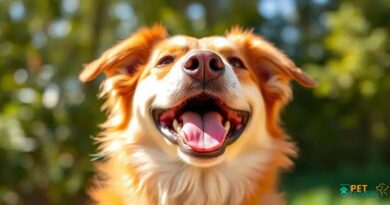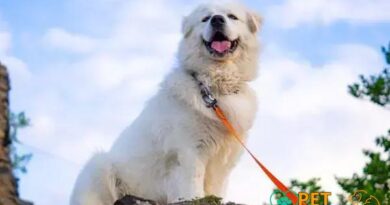What is Young adult dog needs
Understanding Young Adult Dog Needs
Young adult dogs, typically aged between one and three years, have unique needs that differ significantly from puppies and senior dogs. During this phase, they are transitioning from the playful, energetic puppy stage to a more mature and stable adult phase. Understanding what young adult dogs need is crucial for their development, health, and overall well-being. This period is characterized by high energy levels, curiosity, and a need for mental stimulation, making it essential for owners to provide the right environment and care.
Nutrition for Young Adult Dogs
One of the primary needs of young adult dogs is proper nutrition. At this stage, their dietary requirements shift as they continue to grow and develop muscle mass. A balanced diet rich in high-quality proteins, fats, and essential vitamins and minerals is vital. Owners should look for dog food specifically formulated for young adults, ensuring it meets the energy demands of their active lifestyle. Regular feeding schedules and portion control are also important to prevent obesity, which can lead to health issues later in life.
Exercise Requirements
Young adult dogs require a significant amount of physical exercise to maintain their health and happiness. Daily walks, playtime, and engaging activities are crucial to burn off excess energy. Depending on the breed, some young adult dogs may need more vigorous exercise, such as running or agility training. Regular physical activity not only keeps them fit but also helps prevent behavioral problems that can arise from boredom or pent-up energy.
Mental Stimulation and Training
Mental stimulation is just as important as physical exercise for young adult dogs. This age group is highly intelligent and eager to learn, making it the perfect time for training and socialization. Engaging in obedience training, puzzle toys, and interactive games can help keep their minds sharp. Positive reinforcement methods work best, as they encourage good behavior and strengthen the bond between the dog and owner.
Socialization Needs
Socialization is a critical aspect of a young adult dog’s development. Exposing them to various environments, people, and other animals helps them become well-adjusted and confident. This phase is ideal for introducing them to new experiences, as it can prevent fear-based behaviors in the future. Regular trips to dog parks, playdates with other dogs, and participation in training classes can enhance their social skills.
Health Care and Regular Check-ups
Regular veterinary check-ups are essential for young adult dogs to monitor their health and catch any potential issues early. Vaccinations, parasite control, and dental care should be prioritized. Additionally, discussing spaying or neutering with a veterinarian is important, as it can impact their behavior and health. Keeping up with preventive care ensures that young adult dogs lead a long, healthy life.
Grooming Needs
Grooming is another important aspect of caring for young adult dogs. Depending on the breed, grooming needs can vary significantly. Regular brushing helps to keep their coat healthy and free from mats, while baths should be given as needed. Nail trimming and ear cleaning are also essential parts of grooming that should not be overlooked. Establishing a grooming routine early on can help young adult dogs become accustomed to the process.
Creating a Safe Environment
Providing a safe and secure environment is crucial for young adult dogs. This includes ensuring that the home is free from hazards, such as toxic plants, chemicals, and small objects that can be swallowed. Creating a designated space for them to relax and feel secure can also help reduce anxiety. Additionally, using baby gates or crates can help manage their space and keep them safe when unsupervised.
Understanding Behavioral Changes
As young adult dogs mature, their behavior may change. They may become more independent, assertive, or even test boundaries. Understanding these behavioral changes is essential for effective training and management. Owners should remain patient and consistent in their approach, using positive reinforcement to guide their young adult dogs through this transitional phase. Recognizing and addressing any behavioral issues early on can prevent them from becoming ingrained habits.
Building a Strong Bond
Finally, building a strong bond with a young adult dog is vital for their emotional well-being. Spending quality time together through play, training, and simply being present can strengthen the relationship. Engaging in activities that both the owner and dog enjoy fosters trust and companionship, making the young adult dog feel secure and loved. A strong bond leads to a happier, more well-adjusted pet.




